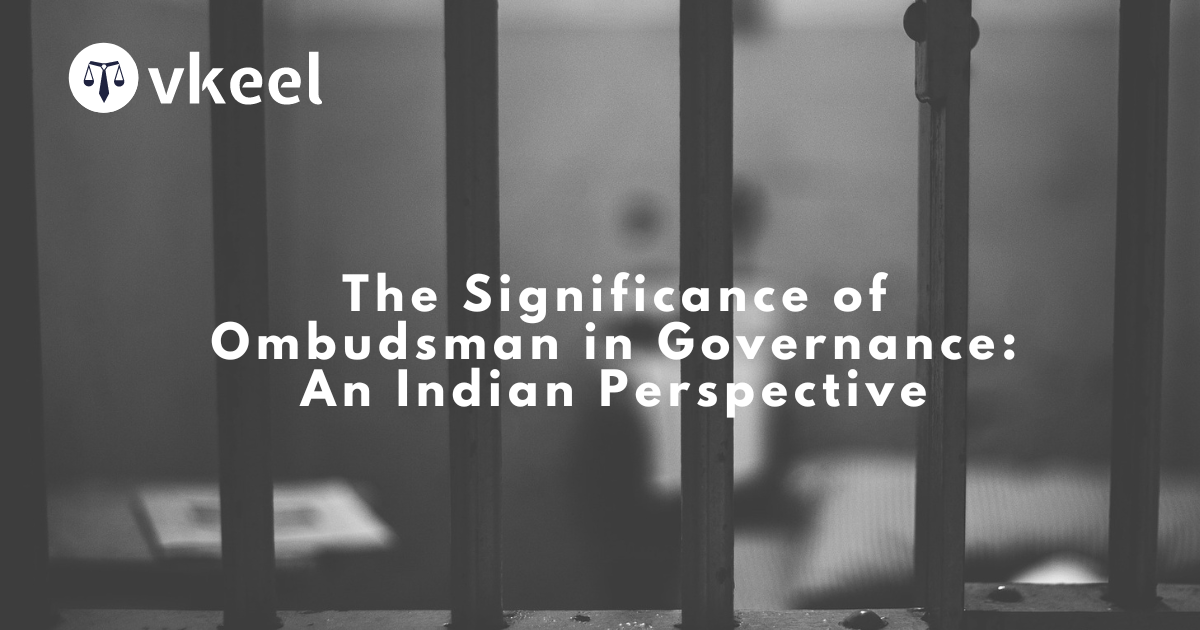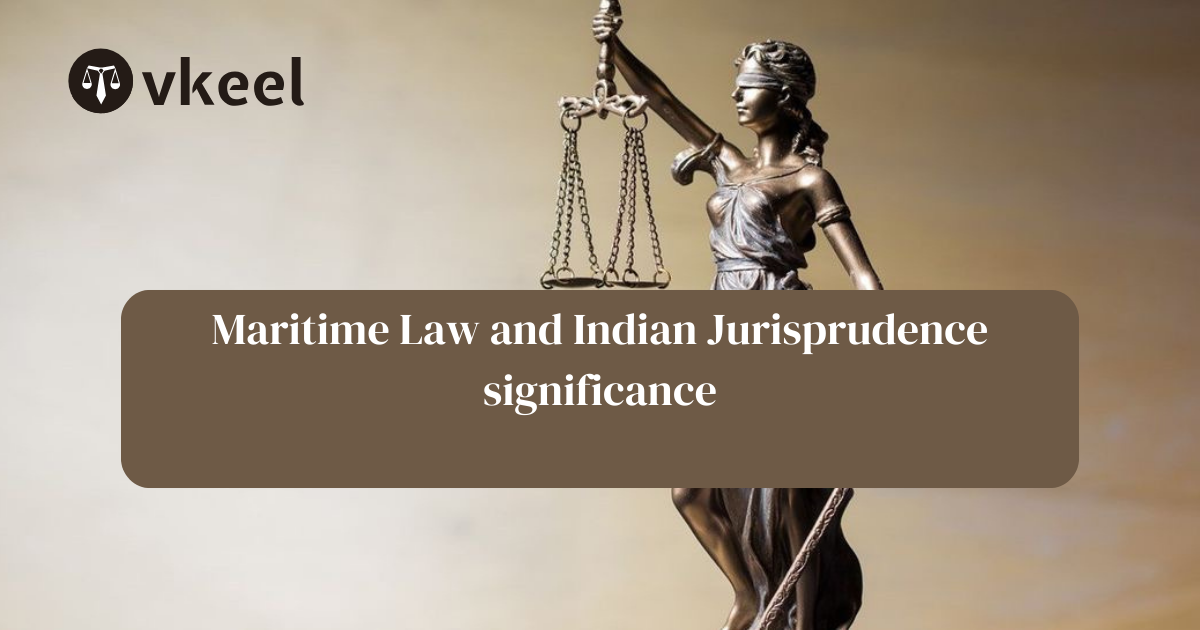The Significance of Ombudsman in Governance: An Indian Perspective
By Himanshu Kumar
Table of Contents
Introduction
An Ombudsman is a vital institution in modern democratic governance, serving as an independent intermediary between the government and the public. It addresses complaints of maladministration, corruption, and injustices in government operations, ensuring accountability and transparency. In India, the Ombudsman is known as the Lokpal at the central level and the Lokayukta at the state level.
The primary reason for the need of an Ombudsman lies in the inherent challenges of maintaining transparency and accountability within government operations. In any democratic setup, the potential for corruption and maladministration is a significant concern. Public officials, entrusted with power, can sometimes misuse their positions, leading to inefficiency, injustice, and a breach of public trust. An Ombudsman serves as an independent watchdog, addressing complaints from the public, investigating allegations of corruption, and ensuring that government officials adhere to legal and ethical standards. This role is crucial in fostering a culture of accountability, where public servants are answerable for their actions, thereby enhancing the overall efficiency and integrity of governance.
Moreover, the presence of an Ombudsman promotes public confidence in government institutions. Citizens need assurance that there are mechanisms in place to address their grievances and rectify wrongdoings. By providing an accessible and impartial platform for the redressal of complaints, the Ombudsman helps bridge the gap between the government and the people. This not only empowers citizens but also deters potential misconduct among public officials, knowing that their actions are subject to scrutiny. In essence, an Ombudsman is vital for upholding the principles of justice, fairness, and transparency, which are the bedrock of a functional and trustworthy democratic society.
Historical Context
The concept of the Ombudsman originated in Sweden in the early 19th century. India adopted this model with the enactment of the Lokpal and Lokayuktas Act in 2013. Before this, the idea had been discussed for several decades, with various committees and commissions recommending the establishment of such an institution to combat corruption and ensure good governance.
The Lokpal and Lokayuktas Act, 2013
The Lokpal and Lokayuktas Act, 2013, is a significant milestone in India’s fight against corruption. The Act provides for the establishment of the Lokpal at the central level and Lokayuktas at the state level. The Lokpal consists of a chairperson and a maximum of eight members, half of whom must be judicial members. The Lokpal has jurisdiction over the Prime Minister, Ministers, Members of Parliament, and public servants.
Functions and Powers of the Lokpal and Lokayuktas
The Lokpal and Lokayuktas have the power to investigate and prosecute cases of corruption and maladministration. They can initiate investigations suo motu or based on complaints from the public. The powers of the Lokpal include:
- Inquiry and Investigation: The Lokpal can inquire into allegations of corruption against public functionaries.
- Prosecution: Upon finding prima facie evidence of corruption, the Lokpal can initiate prosecution in special courts.
- Recommendation: The Lokpal can recommend disciplinary actions against public servants.
- Supervisory Role: The Lokpal supervises the Central Bureau of Investigation (CBI) for cases referred to it.
Case Laws Shaping the Role of Lokpal and Lokayuktas
1. Prashant Bhushan v. Union of India (2014)
In this landmark case, activist-lawyer Prashant Bhushan challenged the delay in the appointment of the Lokpal. The Supreme Court directed the government to expedite the process, emphasizing the importance of the Lokpal in combating corruption. This case underscored the judiciary’s role in ensuring the effective implementation of the Lokpal and Lokayuktas Act.
2. Common Cause v. Union of India (2018)
This case highlighted the need for a transparent selection process for the Lokpal. The Supreme Court ruled that the absence of the Leader of Opposition (LoP) should not delay the appointment of the Lokpal. The court’s intervention led to the eventual appointment of the first Lokpal in 2019, after years of delay.
Amendments to the Lokpal and Lokayuktas Act
Several amendments have been made to the Lokpal and Lokayuktas Act to enhance its effectiveness:
- The Lokpal and Lokayuktas (Amendment) Act, 2016: This amendment provided for the inclusion of the leader of the largest opposition party in the selection committee for the Lokpal, in the absence of the LoP.
- The Lokpal and Lokayuktas (Amendment) Bill, 2020: This proposed amendment sought to give the Lokpal the power to act against public servants who do not disclose their assets and liabilities or who file false declarations.
Role of Lokayuktas in State Governance
Lokayuktas function at the state level, mirroring the role of the Lokpal. The effectiveness of Lokayuktas varies across states, with some being more proactive and others less so. States like Karnataka and Maharashtra have had relatively strong Lokayuktas, which have played significant roles in exposing corruption and maladministration.
1. Karnataka Lokayukta Case (2011)
In Karnataka, the Lokayukta, under Justice N. Santosh Hegde, exposed large-scale illegal mining involving politicians, bureaucrats, and businessmen. The investigation led to the resignation of the Chief Minister and several ministers, demonstrating the impact a proactive Lokayukta can have on state governance.
2. Maharashtra Lokayukta Case (2015)
The Maharashtra Lokayukta’s investigation into the Adarsh Housing Society scam led to the indictment of several high-ranking officials and politicians. The case highlighted the role of the Lokayukta in addressing corruption at the state level.
Challenges and Criticisms
Despite its significance, the Ombudsman system in India faces several challenges:
- Political Interference: The selection and functioning of the Lokpal and Lokayuktas are often influenced by political considerations, undermining their independence.
- Limited Jurisdiction: The Lokpal’s jurisdiction does not extend to the judiciary and the armed forces, limiting its scope.
- Implementation Issues: There have been delays in the establishment and functioning of Lokayuktas in several states, reducing their effectiveness.
Conclusion
The Ombudsman system, represented by the Lokpal and Lokayuktas, is a cornerstone of good governance in India. It plays a crucial role in addressing corruption, ensuring accountability, and enhancing public trust in government institutions. While there have been significant strides in establishing and empowering these institutions, challenges remain. Strengthening the independence and jurisdiction of the Lokpal and Lokayuktas, ensuring timely appointments, and enhancing public awareness are essential steps towards realizing their full potential in India’s democratic governance.
References
- Prashant Bhushan v. Union of India, (2014) 4 SCC 616.
- Common Cause v. Union of India, (2018) 5 SCC 1.
- Lokpal and Lokayuktas Act, 2013.
- Lokpal and Lokayuktas (Amendment) Act, 2016.
- Lokpal and Lokayuktas (Amendment) Bill, 2020.
- Karnataka Lokayukta Report on Illegal Mining (2011).
- Maharashtra Lokayukta Report on Adarsh Housing Society Scam (2015).
Disclaimer:
The information provided in the article is for general informational purposes only, and is not intended to constitute legal advice or to be relied upon as a substitute for legal advice. Furthermore, any information contained in the article is not guaranteed to be current, complete or accurate. If you require legal advice or representation, you should contact an attorney or law firm directly. We are not responsible for any damages resulting from any reliance on the content of this website.










